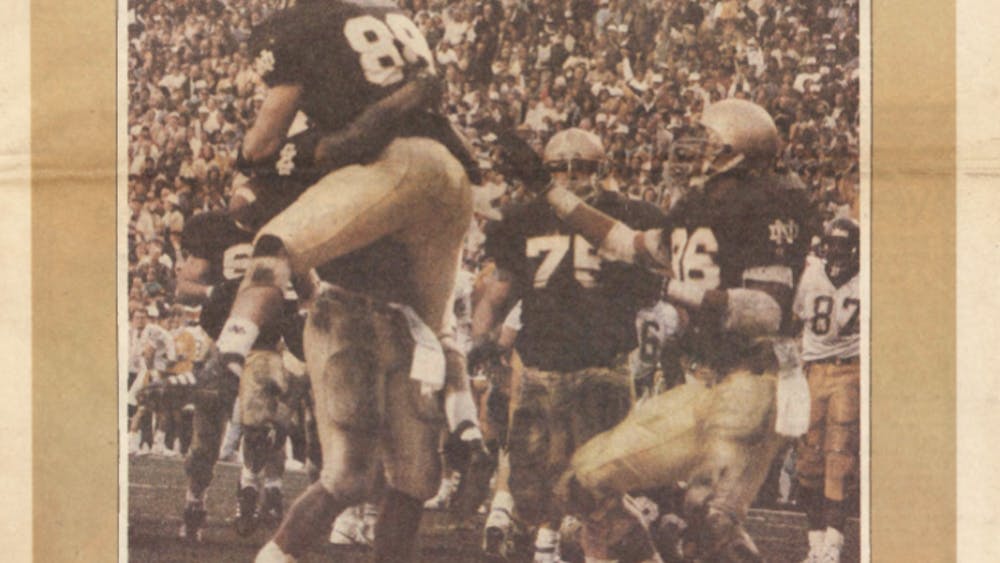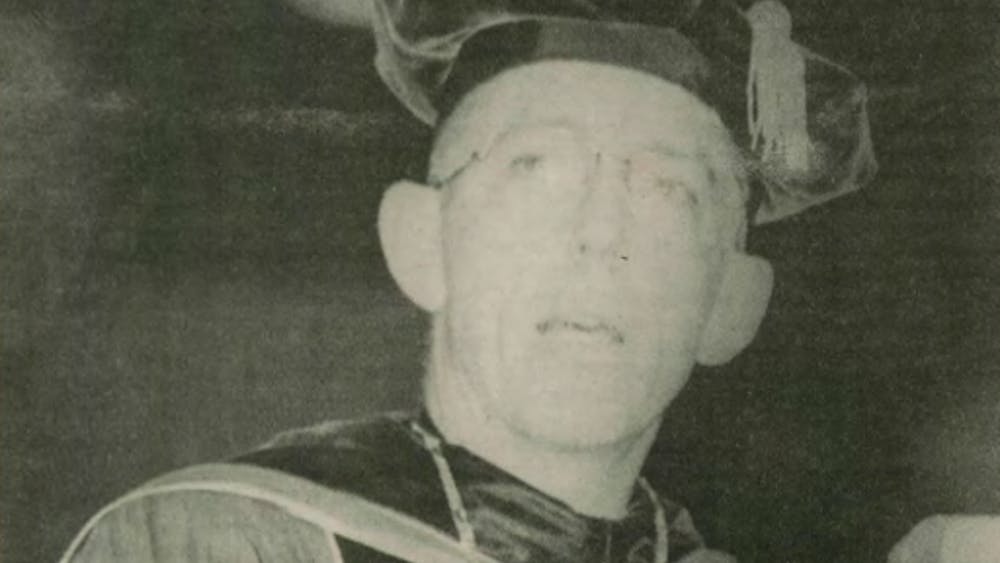 Diane Park | The Observer
Diane Park | The Observer
From the Archives: The Domino's Pizza odyssey at Notre Dame: A tale of deliveries, campus-wide bans and stolen signs
Sept. 10, 1982 | Observer Staff | May 4, 1984 | Marc Ramirez | Jan. 30, 1985 | Mary Sieger | Nov. 18, 1986 | Observer Staff | Sept. 16, 1986 | Observer Staff | April 22, 1993 | Sarah Doran | Researched by Thomas Dobbs
Before Grubhub delivery robots and the convenience of modern food delivery apps, there was Domino's Pizza, an iconic brand that popularized the idea of pizza arriving at your doorstep. For Notre Dame students, Domino's was more than just a pizza joint. It was a familiar name that delivered delicious slices right to their dorm rooms. In this journey through the archives, we delve into the histories of Domino's Pizza at Notre Dame, exploring the moments that defined its presence on campus.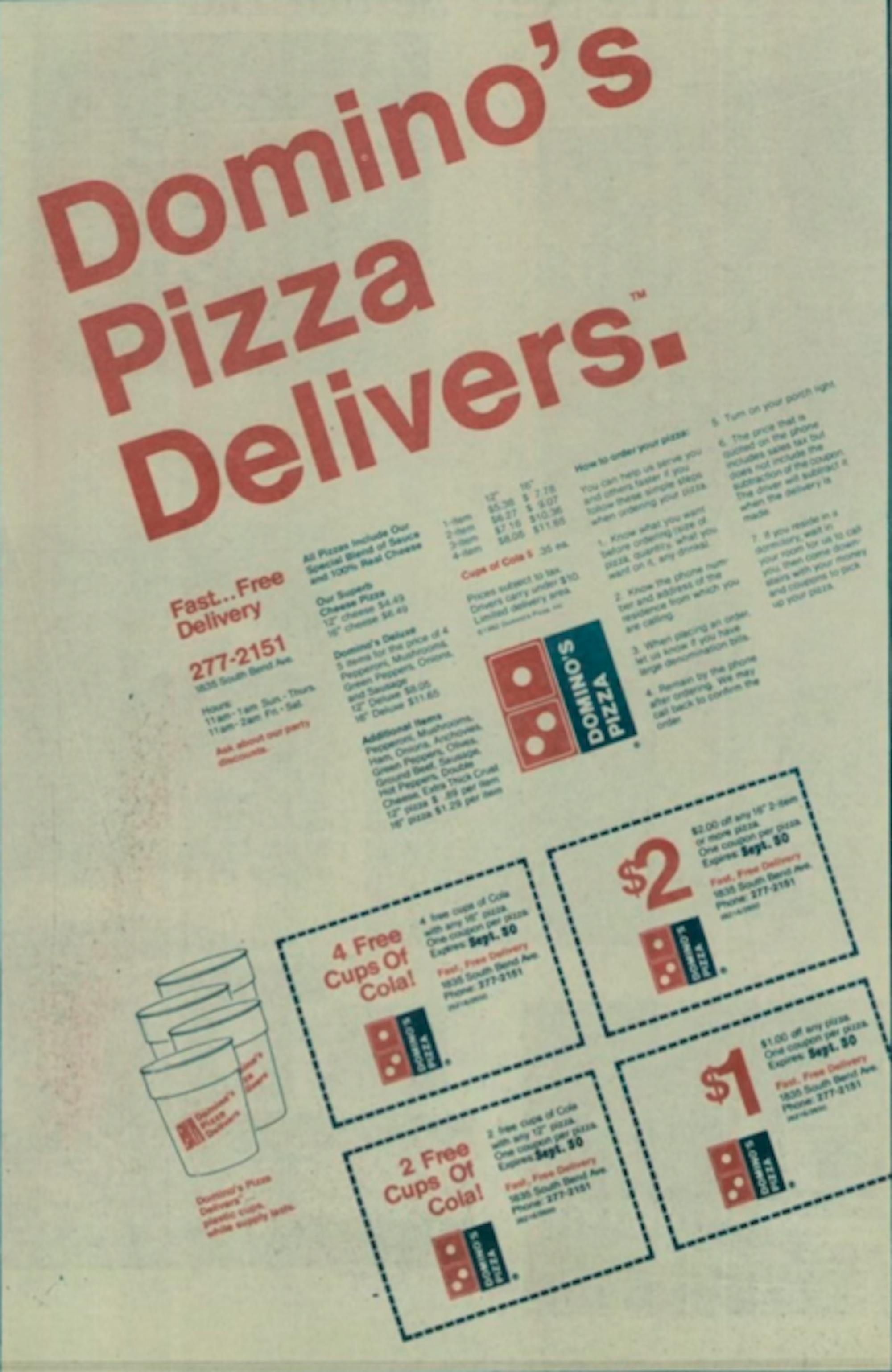
The first Domino's advertisement in The Observer.
Domino's and the 30-minute guarantee
Long before the age of delivery apps and autonomous robots, Domino's Pizza revolutionized the world of pizza delivery with their groundbreaking 30-minute guarantee. This iconic concept was the brainchild of the company's visionary founder, Tom Monaghan. In a memorable moment etched in history, Monaghan made a significant impression when he visited Saint Mary's in 1984 to deliver a speech. During his address, he humorously quipped, "I promise to deliver this lecture within 30 minutes or deliver it free of charge."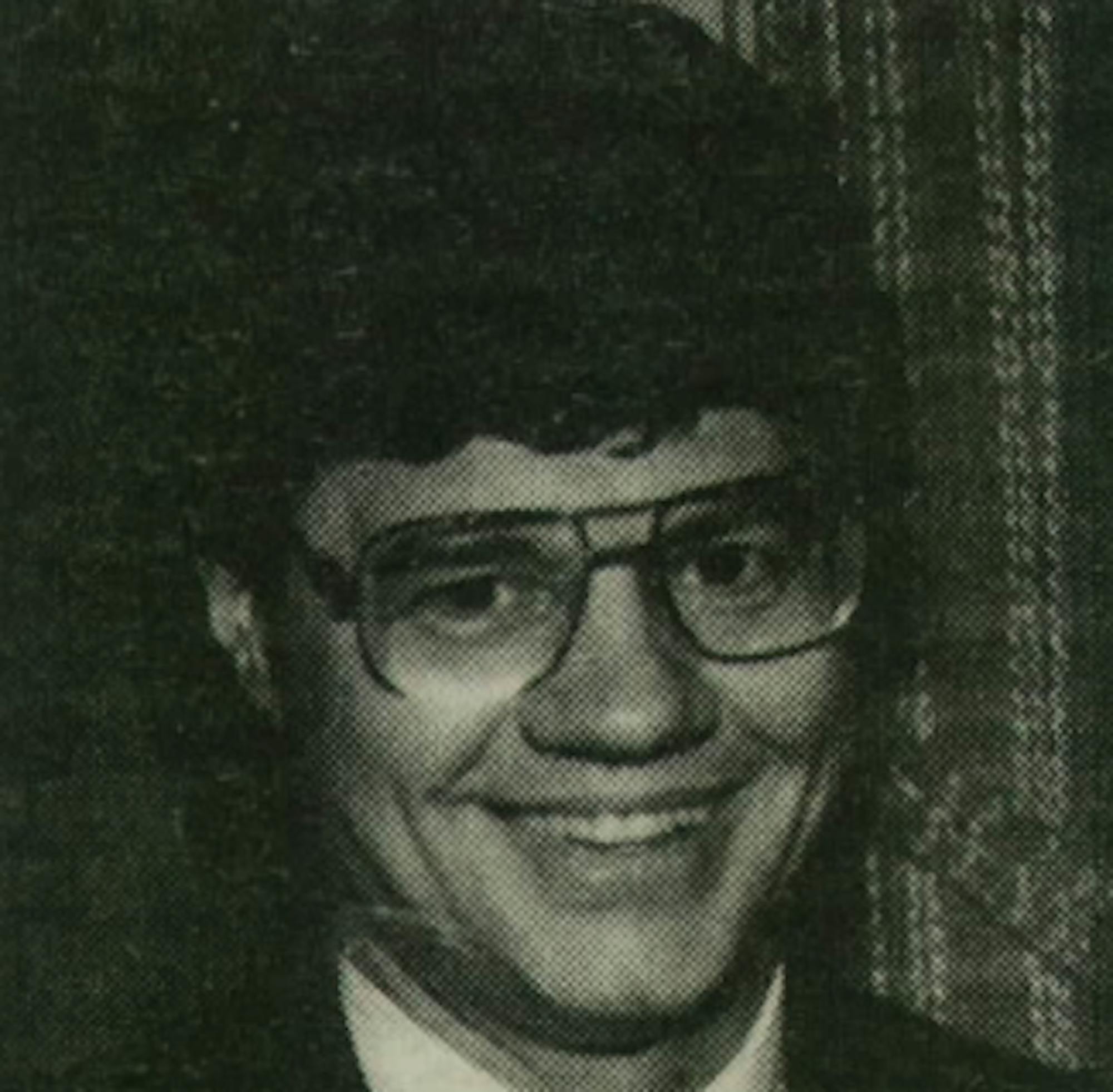
Domino’s Founder Thomas S. Monaghan.
"Pizza, pizza ... but not every day?"
Amidst the pizza-centric buzz surrounding Domino's at Notre Dame, there emerged a subtle reminder that variety in culinary experiences was the spice of college life. The Observer featured a resonant title that echoed this sentiment: "Domers cannot live by Domino's alone." The phrase, initially prompted by the enduring popularity of Domino's Pizza on campus, took on a deeper meaning. It was a reminder that while pizza might be a beloved staple, the palate yearned for more.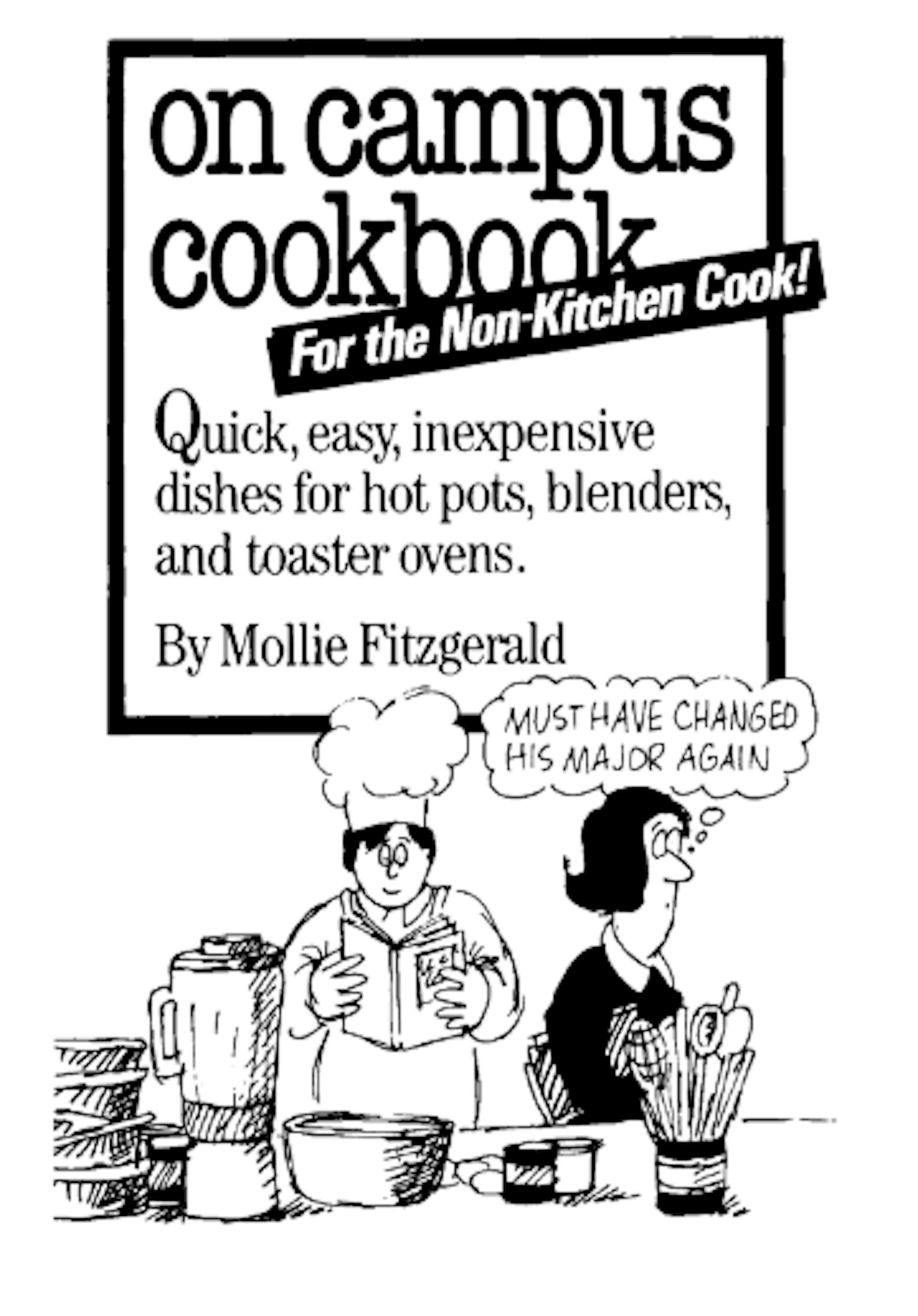
Observer Archives, Jan. 30, 1985
A stolen Domino's car and sign
While Notre Dame students enjoyed the convenience of Domino's delivery, not all incidents were about getting pizzas on time. One particularly memorable event involved the theft of a Domino's Pizza delivery car, a 1977 Oldsmobile valued at $1,000, from behind Lyons Hall. The thief's daring escapade led to an unexpected twist when they got into an accident with the stolen car. Faced with the prospect of discovery, the thief decided to abandon the car, leaving Notre Dame security with the unexpected task of recovering the vehicle.Another bizarre incident involved the disappearance of a Domino's sign from the top of a delivery car parked next to Grace Hall. This puzzling theft raised questions about the motivations behind such an unusual act. It's not entirely implausible that the culprit's dorm room may have suddenly benefited from the addition of a prized edition of Domino's Pizza signage, transforming it into an unexpected pizza parlor haven.Domino's briefly banned from campus
But perhaps the most significant event in the history of Domino's at Notre Dame was their temporary ban from delivering pizzas to the University in 1993. This ban, lasting from March 31 to April 20, resulted from Domino's failure to abide by campus regulations concerning the posting of signs on campus.According to longstanding University policy, signs must be approved by the Office of Student Activities before being displayed on campus. Domino's, however, had posted signs without obtaining the necessary approval, which led to the ban. William Kirk, assistant vice president for student affairs, said the University had warned Domino's on multiple occasions about the prohibition on unapproved signs.Initially set to last until May 18, the ban was shortened "to accommodate the students," according to Kirk. Notre Dame aimed to strike a balance between enforcing the rules and understanding the students' needs.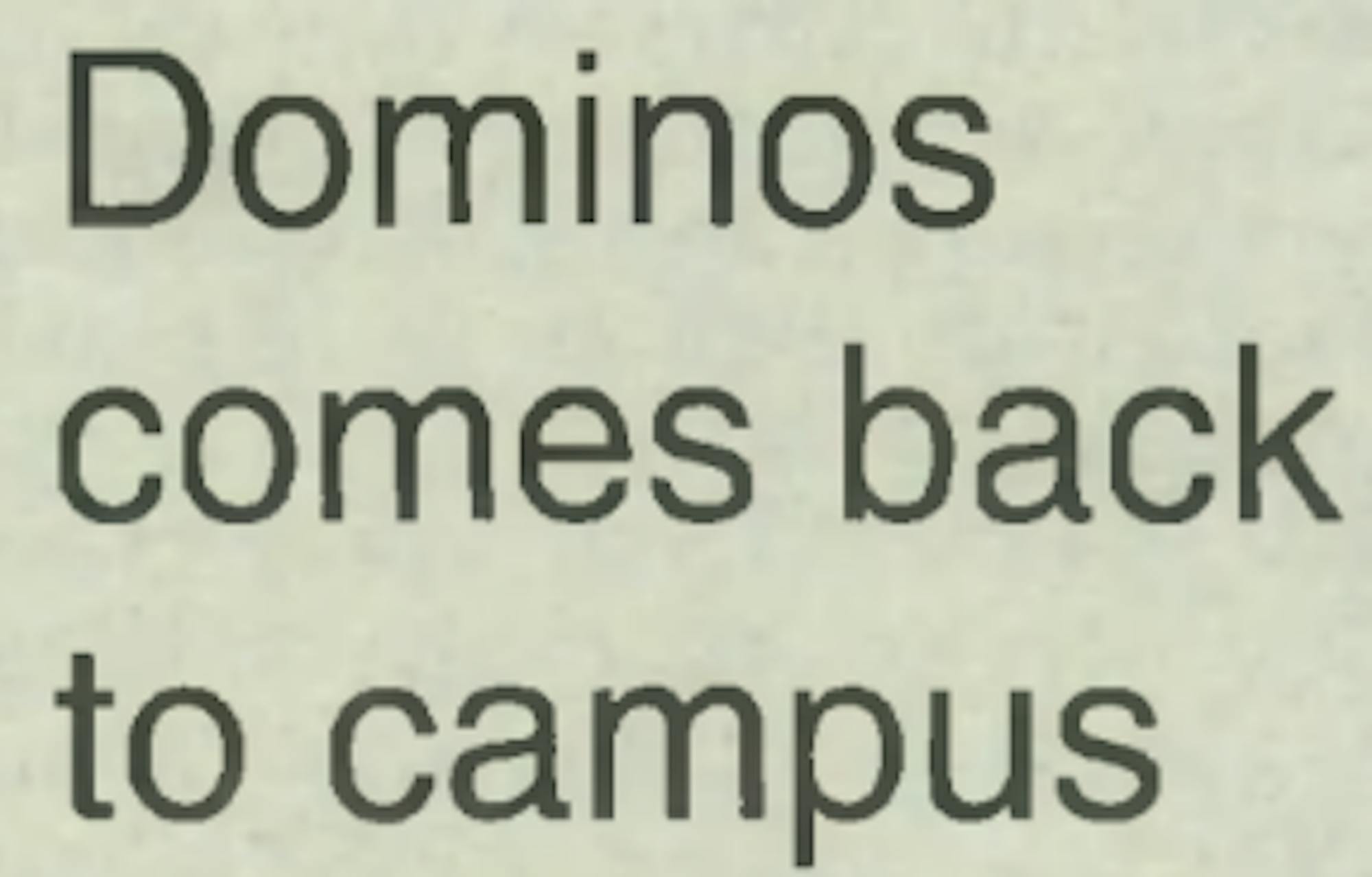
Observer Archives, April 22, 1993


